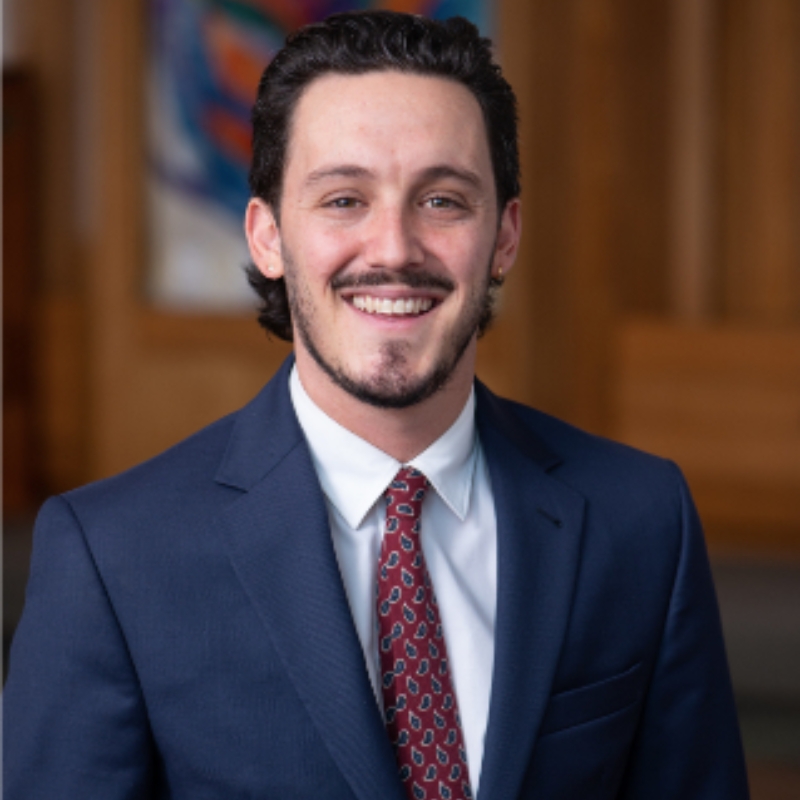The Book of Leviticus is one that Jewish educators have spent considerable time reframing in order to find contemporary meaning. After the rich interpersonal narratives of Genesis and the miracles and redemption of Exodus, we find ourselves reading week in and week out about the nuances of different sacrifices brought before God — in unsettling detail. In a world where we no longer offer animals and grain as a means to seek repentance or offer praise, we try to understand these as a vehicle through which the Israelites and the Divine were seeking greater closeness to one another. (The Hebrew words for sacrifice, korban, and for closeness, kirva, share the same root.) This notion, of sacrifices fostering greater intimacy and that God is actually only interested in dwelling among the people, is devastatingly undercut by the events of Parshat Shmini.
In chapter 10, Moses, Aaron, and Aaron’s sons, Nadav and Avihu, are in the midst of offering sacrifices to bring God’s presence into greater proximity with the Israelite community. And then, with little warning, as Nadav and Avihu are making an offering, a fire comes forth, and they are abruptly killed by the Divine Spirit. This moment, sudden and jarring, is wholly mysterious, and our tradition struggles to make sense of it. Many of our rabbis seek to harmonize this tragedy with a vision of a God who is without fault, pointing out the ways that Nadav and Avihu erred in their process of offering, and suggesting that they were thus solely to blame for their own deaths. Vayikra Rabbah (12:1) explains that the two young men acted while under the influence of alcohol, while Ibn Ezra (on 10:1) argues that they were not commanded to bring any fire at all, let alone the “strange fire” specified in the text, thus justifying their cruel fate.
Find more commentaries on Shmini.
This incident is made all the more tragic in our mind’s eye when we confront that their deaths take place right in front of their father, Aaron, who is left literally speechless. We read in 10:3, “Vayidom Aharon — Aaron was silent.” Again, much of our traditional commentary is uncomfortable with the notion that Aaron would see fault in God’s actions. Rashbam writes that this silence was one of submissive acceptance, while Rashi expounds that Aaron will go on to be rewarded for this virtuous silence. I am not only made uncomfortable by these readings, but believe they do a disservice to Aaron, the Israelites, and all of us who are too familiar with feelings of grief, devastation, and righteous indignation.
Thankfully, the 13th century rabbi, Ramban, was also unwilling to let God so easily off the hook, unwilling to let the lowest moment of Aaron’s life be a mere footnote buried among the pages of ritual instruction. Like many of the commentators, the Ramban asks, why does the Torah use the word Vayidom, as opposed to another word for fall silent, like Vayishtok? He explains that Vayidom is best translated as “he became silent” — and goes on to explain that this verb implies that his silence followed his initial crying aloud. Moses will quickly tell Aaron there is no time to mourn, it is time to move on with the ritual. Nevertheless, Aaron — though astutely aware of the high stakes of anything but perfect and complete submission to God’s will — cries, mourns, and makes clear, “This act of injustice is NOT ok and will NOT be glossed over” before he becomes silent. Silence here is not the absence of dissent but rather an affirmation that the dissent is so significant that Aaron refuses to carry on with business as usual, to maintain the status quo, to move right back into words. His silence makes clear that this is a moment that must be reckoned with.
Find more commentaries on silence and protest.
We learn in the Mishnah (Avot 1:12) that Aaron was known as a lover of peace, but even more critically, as a chaser of peace. Aaron was not silent because he was ready to accept things as they were. His silence was a way to express loud and clear: I am experiencing inexplicable pain; no one should have to feel this loss. Aaron’s silence is an act of protest rather than abandonment. Aaron is teaching us that wanting intimacy means wanting everything that comes with it, not only the spiritual highs, but the moments of deep pain and discord.
Over the last six months, we have been forced to reckon with a world that has not allowed us the space to mourn, has not allowed us the grace to be imperfect, has not fostered connection but only more and more and more senseless loss, devastation, and uncertainty. Aaron teaches us that an “uncommitted” vote, or any expression that demands that U.S. dollars be accompanied by a cease-fire, humanitarian aid, a call for release of the hostages, and a commitment to peace for all peoples living in the land is NOT silence or an abandonment of the Jewish people. It is a desire for the very intimacy we set out for in the Book of Leviticus, one where relationship with the Divine, and with each other, is characterized by real intimacy — an ability to say I will show up, but only if I can demand that when there is destruction there is rebuilding, when there is grief there is space to mourn, when there is heartbreak there is space for healing. We have the right to our silence, but only when we’ve first made sure our cries for repair, justice, and peace are heard.
Aaron Leven is the associate rabbi at Nefesh, an open-hearted spiritual community serving the east side neighborhoods of Los Angeles. Ordained at the Jewish Theological Seminary in May of 2023, he is a native Angeleno who is thrilled to be back home where he is in walking distance to both Nefesh and to Dodger Stadium.

